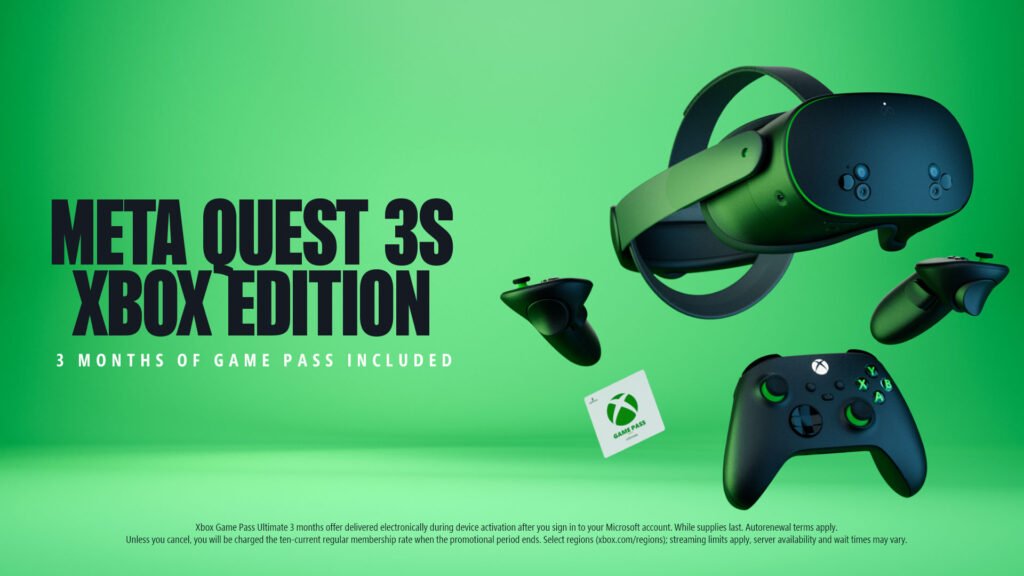
Microsoft Expands Gaming Horizons Through Strategic Meta Quest Season 3 Xbox Integration
Microsoft is displaying its audacious vision of the future of gaming through an expanded partnership with Meta for Meta Quest Season 3 and by designing games that run in the VR ecosystem with Xbox gaming content, directly from Xbox. This collaboration represents a pivotal step in Microsoft’s pursuit of a long-term metaverse and gaming vision, situating Xbox Cloud-enabled titles right within the new line of Meta Quest VR headsets.
This collaboration is more than a technical step forward; it reflects the concept that the experience of gaming tomorrow will not be limited to screens of yesterday.
Meta Quest Season 3 is evolving cross-platform capability. For the first time, selected Xbox Game Pass titles, such as Halo Infinite, Forza Horizon 5, and Microsoft Flight Simulator, will be available in a fully immersive VR capability with the Quest 3 and Quest Pro devices.
Players will be able to play Xbox games in immersive 3D environments, not simply flat projections, and spatial audio and mixed reality layers will enhance the experience. To put it differently, Microsoft wants players to “step into the game”, not simply play the game.
The third season has a Game Room 360 interface – a customizable Xbox VR experience, where users can customize their preferred settings, access games, invite buddies into VR spaces, and do multi-tasking with video or browser overlays. Some features of Game Room 360 are:
- Cloud Gaming in VR via Xbox Game Pass Ultimate
- Enhancements to hand tracking and voice control
- Mixed Reality Companion AI that gives players friendly tips and in-game social notifications in real-time
- Achievement Sharing – sharing achievements while in VR
According to Meta’s CTO, Andrew Bosworth, this “connects Xbox’s legendary gaming culture with the fully spatial web,” allowing users to get the best of both worlds, a mix of console and metaverse experiences.
It’s merely a calculated move for Microsoft to continue its quest for dominance across platforms, consoles, cloud, and now, virtual and mixed reality.
Gaming analysts have noted that Microsoft has been diligently preparing for this convergence. The Activision Blizzard acquisition, the cloud infrastructure with Azure, and continued investment in XR (Extended Reality) with a project like Mesh for Teams, are all included in a larger play.
Microsoft and Meta are not only working on new VR-native IPs, developed exclusively through their Xbox-Meta VR collaboration, but also reportedly looking at how soon they can incorporate Microsoft’s AI Copilot for voice-powered game assistance.
As Apple pushes the regulations and demand of its Vision Pro ecosystem, and Sony doubles down on its PSVR line-up, Microsoft’s partnership with Meta may very well be what distinguishes it in this next generation of platform war.
By bringing Xbox into Meta’s most ambitious VR season yet, Microsoft is indicating a tomorrow where games are not just played, but lived. As the lines between what is real and what is virtual usher in the Metaverse’s potential, this partnership could be the blueprint for the future lifestyle of how entertainment, community, and immersive technology will intersect.
For the time being, gamers can prepare themselves for a Meta-powered Xbox revolution, one that will not just be played, but felt.
Keep reading khiladicafe